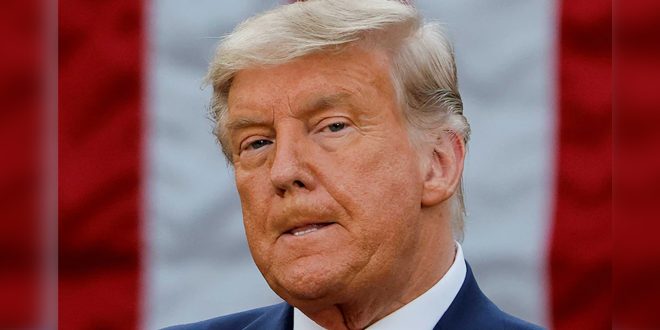Behind closed doors in 2017, President Donald Trump discussed the idea of using a nuclear weapon against the people’s Democratic Republic of Korea (North Korea) and suggested he could blame a U.S. strike against the DPRK on another country, according to a new section of a book that details key events of Trump’s administration.
Trump’s comments, reported for the first time in a new afterword to a book by New York Times Washington correspondent Michael Schmidt, came as tensions between the U.S. and North Korea’s Kim Jong-un escalated, alarming then-White House chief of staff John Kelly.
The new section of “Donald Trump v. the United States,” obtained by NBC News ahead of its publication in paperback Tuesday, offers an extensive examination of Kelly’s life and tenure as Trump’s chief of staff from July 2017 to January 2019. Kelly previously was Trump’s secretary of homeland security. For the account, Schmidt cites in part dozens of interviews on background with former Trump administration officials and others who worked with Kelly.
Eight days after Kelly arrived at the White House as chief of staff, Trump warned that North Korea would be “met with fire and fury and frankly power, the likes of which this world has never seen before.” When Trump delivered his first speech to the U.N. General Assembly in September 2017, he threatened to “totally destroy North Korea” if Kim, whom he referred to as “Rocket Man,” continued his “military threats”.
Later that month, Trump continued to goad North Korea through his tweets. But Kelly was more concerned about what Trump was saying privately, Schmidt reports.
“What scared Kelly even more than the tweets was the fact that behind closed doors in the Oval Office, Trump continued to talk as if he wanted to go to war. He cavalierly discussed the idea of using a nuclear weapon against North Korea, saying that if he took such an action, the administration could blame someone else for it to absolve itself of responsibility,” according to the new section of the book.
Kelly tried to use reason to explain to Trump why that would not work, Schmidt continues.
“It’d be tough to not have the finger pointed at us,” Kelly told the president, according to the afterword.
Kelly brought the military’s top leaders to the White House to brief Trump about how war between the U.S. and North Korea could easily break out, as well as the enormous consequences of such a conflict. But the argument about how many people could be killed had “no impact on Trump,” Schmidt writes.
Kelly then tried to point out that there would be economic repercussions, but the argument held Trump’s attention for only so long, according to the afterword.
Then, Trump “would turn back to the possibility of war, including at one point raising to Kelly the possibility of launching a preemptive military attack against North Korea,” Schmidt said.
Kelly warned that Trump would need congressional approval for a pre-emptive strike, which “baffled and annoyed” Trump, according to the afterword.
According to the new section, Kelly came up with a plan he believes ultimately prompted Trump to dial back the rhetoric in spring 2018: appealing directly to Trump’s “narcissism.”
Kelly convinced the president he could prove he was the “greatest salesman in the world” by trying to strike a diplomatic relationship, Schmidt writes, thereby preventing a nuclear conflict that Kelly and other top military leaders saw as a more immediate threat than most realized at the time.
Source: NBC News
Edited by Hamda Mustafa

